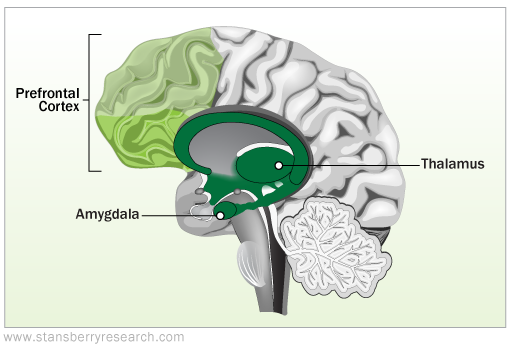For decades, it was a hokey "health practice"... But today it's big business.
In 2019, the market for mindfulness meditation apps was valued at around $470 million. And the global market for mindfulness meditation apps is estimated to grow to more than $6 billion by 2027.
There are lots of different types of meditation, many of which we've covered over the years, like transcendental meditation and mantra meditation. One of the most popular techniques (and a favorite among apps) is mindfulness meditation.
Mindfulness meditation is a form of focusing on the present moment and noticing all of the things you are sensing and feeling without interpretation or judgment. Practicing this form of meditation involves breathing in a specific way, using guided imagery, and fully relaxing the body and mind.
Mindfulness meditation can be broken down into two components: attention and acceptance. The attention component is about focusing fully on the present moment by directing your breath, thoughts, and senses. The acceptance aspect is about observing all of your feelings and sensations without judgment. Rather than responding to your thoughts or feelings, simply take note of them and then let them pass by.
Mindfulness meditation offers a host of science-backed benefits:
- Helping manage stress, anxiety, and depression.
- Helping with pain management.
- Helping treat insomnia.
- Helping manage high blood pressure.
- Preliminary research indicates that it may also improve asthma and fibromyalgia symptoms.
So ditch your medications. All of these benefits can be yours for the taking, because mindfulness meditation helps your mind and body relax and react less to fear...
Using functional magnetic resonance imaging ("fMRI"), we can study the way that the brain changes in response to mindfulness meditation practice through pictures. In a 2018 study, neuroscientist and radiology instructor Gaëlle Desbordes used fMRI to scan and examine the brain before and after a two-month meditation course.
She scanned subjects while they were participating in everyday tasks in order to detect changes in the brain processing centers. As it turns out, the area of the brain where we process fear, emotion, and behavior – the amygdala – did experience changes...

The amygdala and the thalamus work together to trigger a fear response even before you're consciously aware of a threat. The amygdala is also instrumental in forming memories that are associated with fearful events.
When you practice mindfulness meditation, your amygdala shrinks, and the signals that connect to it get weaker. This means that your brain is less impacted by fear.
Your prefrontal cortex – which controls complex brain functions like awareness, concentration, and decision making – also gets thicker when you practice mindfulness meditation. This means that your prefrontal cortex now has stronger connections, and your abilities of decision making, concentration, and awareness improve.
After the meditation protocol, participants watched images with emotional content and experienced less activation in the amygdala, indicating higher levels of emotional control.
Focusing our attention on the present moment helps us break a cycle of rumination that can interfere with our wellbeing. By engaging in regular mindfulness meditation, we experience important changes in our brain that allow us to live better and operate optimally.
Getting started with your new mindfulness meditation routine is as easy as flipping on Netflix, finding a video on YouTube, or downloading an app onto your phone.
Right now on Netflix, the creators of the podcast Headspace have a new show out about meditation. It's called Headspace Guide to Meditation. It's eight episodes that run 18 to 24 minutes long.
It's a great little series, and at the end of each episode, your host Andy Puddicombe – creator of the Headspace podcast – leads you through a short, guided meditation.
The show covers topics like "how to let go" and "how to deal with pain." Watching this show is an easy way to get you practicing mindfulness meditation.
I try and make space every week to bring myself back to a calm and clear mind. Doing this helps me to stay focused, attentive, and a little more relaxed each day.
What are your favorite ways to meditate? Let us know... [email protected].
What We're Interneting...
- Something a little different: Is this weed-spotting, yield-predicting rover the future of farming?
Here's to our health, wealth, and a great retirement,
Dr. David Eifrig and the Health & Wealth Bulletin Research Team
October 19, 2021
